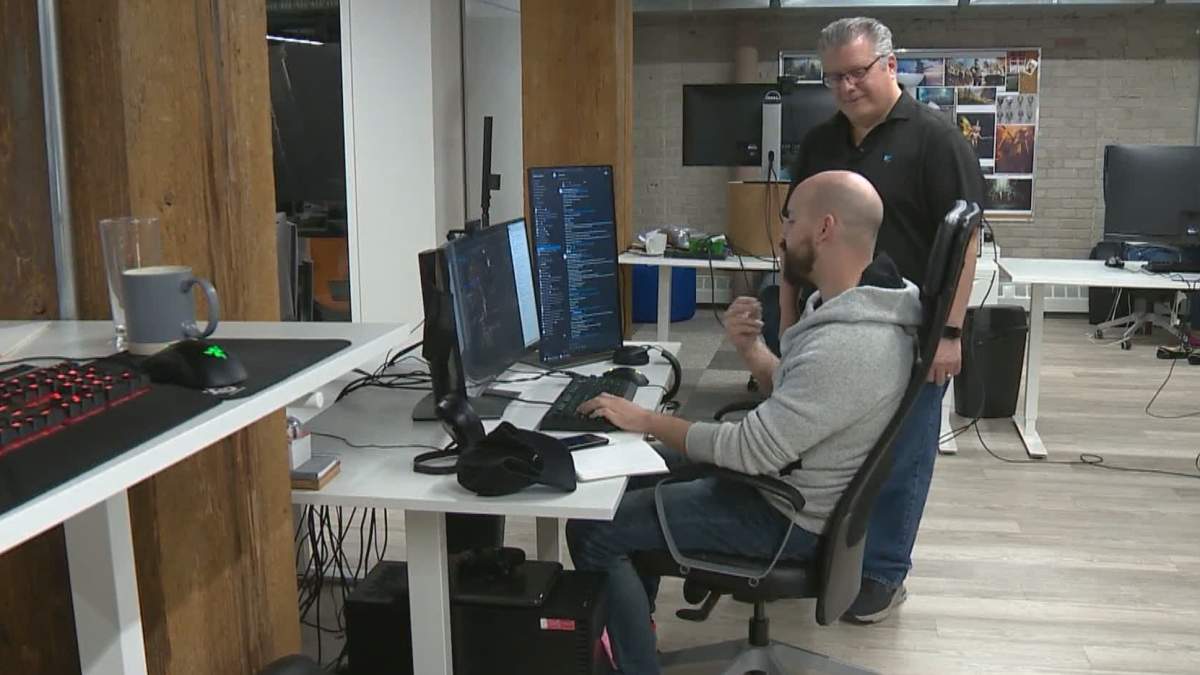When it comes to economic fortunes, Alberta’s 2023 is a world away from 2019. When the province elected the United Conservative Party four years ago, Albertans had been battered by a downturn that seemed to never end.

In 2021, it finally did.
The end of COVID-19-related restrictions coupled with the Russian invasion of Ukraine sent energy prices soaring. Instead of posting record deficits, the Alberta government was dealing with billion-dollar surpluses once again.
But business leaders warn the province has come to a critical juncture and decisions made now will directly influence Alberta’s prosperity for decades to come.
“This is a pivotal time for Alberta, there is a lot at stake,” said Deborah Yedlin, Calgary Chamber of Commerce president and CEO. “We really want to see a government who understands the potential of the province as a whole.”
Yedlin says much of Alberta’s economic future plans were upended last summer with a stroke of a pen.
“The Inflation Reduction Act (IRA) gets tabled and everyone in town says, ‘Oh boy, what are we going to do?'” Yedlin said of the multibillion dollar package signed by U.S. President Joe Biden last year.
The Act offers billions of dollars in subsidies to promote the growth of biofuels, hydrogen and carbon capture and storage but only if those industries grow in the United States.
“It was like somebody came to your dinner table and just flipped it upside down and said, ‘the game has changed’,” said Yedlin.
The president of the Pathways Alliance, an organization representing Canada’s six largest oilsands producers, agrees.

Get daily National news
“The IRA raised the bar, right? And we have to compete with that, it’s just the reality,” said Kendall Dilling, Pathways Alliance president. “In fact as we speak, a lot of Canadian clean tech companies are pivoting to U.S. opportunities because the IRA gives such clear and low risk incentives.”
If Alberta is going to compete with what’s on offer from the United States, Yedlin says the next provincial government will need to work with Ottawa to put forward a package of incentives as well.
“What we need is the province of Alberta to come forward with simple tax credits that can be stackable on top of what the federal government is actually going to be grounding in legislation.”
The NDP platform states that, if elected, it will create the ‘Alberta’s Future Tax Credit’ to “spur investment in cleantech, carbon materials, critical mineral processing, and advanced manufacturing.”
The United Conservative Party platform states says it will “develop programs similar to the Alberta Petrochemical Incentive Program for more capital-intensive technologies.”
Industries outside energy sector seek support
Industries outside Alberta’s energy sector say they’re looking for the next government to create competitive tax incentives well.
The United Conservative Party government introduced the Alberta Film and Television Tax Credit program in January 2020, eliminating the per-production cap in March 2021. The program has been widely praised as a success, attracting new productions to the province including the first season of the HBO hit series The Last of Us. Both the UCP and NDP have said they will build on that success moving forward.
The UCP is also promising to expand the Agri-Processing Investment tax credit to forestry and other areas and give $100 million to the Alberta Enterprise Corporation to attract more venture capital investment.
Absent from their platform however is any mention of a labour-based tax credit for the province’s video game industry.
“In Alberta, for the interactive digital media sector there are no tax incentives,” said Scott Nye, the chair of Digital Alberta and the Chief Operating Officer for the Edmonton-based Inflexion Games.
The NDP government introduced an incentive program for the industry in 2018. The Interactive Digital Media Tax Credit covered 25 per cent of staff salaries and bonuses but the program was cancelled by the United Conservative Party government in 2019.
As a result, Nye says his studio plans to grow its business within Alberta were put on pause. The company’s 40 most recent positions were created in Vancouver, Montreal and Toronto.
“Without a competitive tax incentive in Alberta, we’re simply not going to grow here,” explained Nye. “Jobs are already leaving the province as a result.”
The Alberta NDP says, if elected, if will reinstate the Interactive Digital Media Tax Credit.
Differing plans for the future of Alberta corporate and small business tax
The NDP says it will cut Alberta’s small business tax but plans to hike the corporate tax rate from eight to 11 per cent.
United Conservative candidate Brian Jean called the NDP’s proposed moved “an investment killer.”
At 11 per cent, Alberta’s corporate tax rate would still be the lowest in Canada, a half per cent lower than Ontario and Quebec.
In a statement released May 15, the Calgary Chamber of Commerce urged both parties to maintain the corporate tax rate while eliminating the small business tax.






Comments
Want to discuss? Please read our Commenting Policy first.